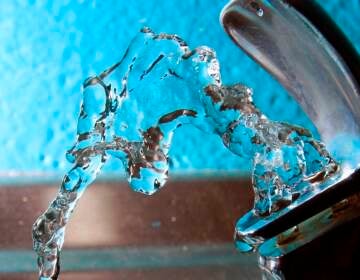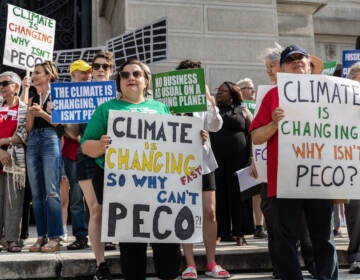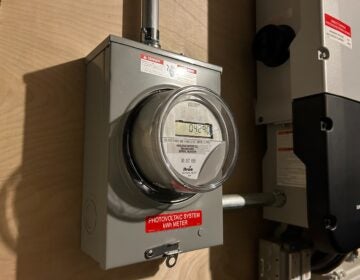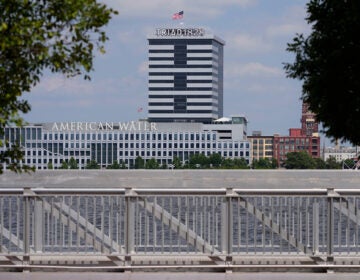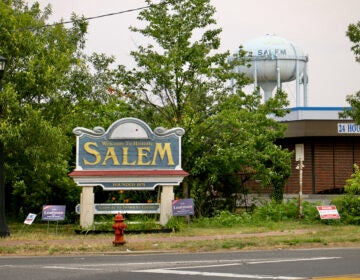Pa. residents behind on water bills can apply for grants up to $5,000
Grants are offered on a first-come, first-served basis for applicants who meet certain income requirements and who have past-due water bills.
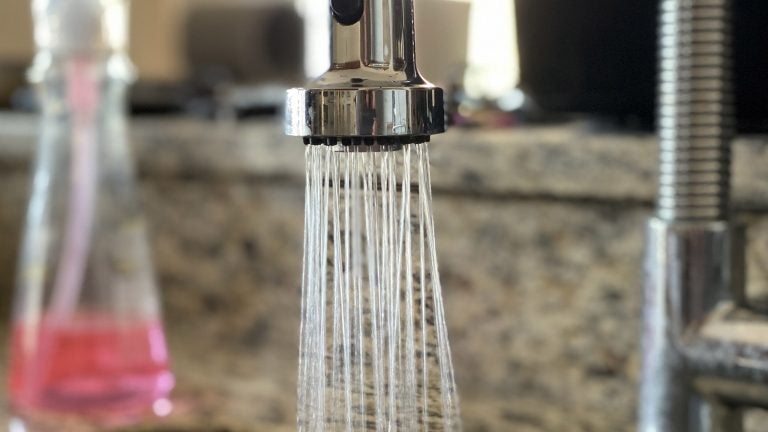
(Danya Henninger/Billy Penn)
Pennsylvania residents in danger of being disconnected from their water services have about a month to apply for financial assistance to pay their water bills.
The state has received $5 million from unused American Rescue Plan funds to help residents struggling to make payments on their water and wastewater bills.
The grants are offered on a first-come, first-served basis for applicants who meet certain income requirements, and who have past-due water bills. Residents can receive as much as $5,000 for water and wastewater bills combined — and they don’t have to pay it back.
The federal dollars will be allocated by Pennsylvania’s Department of Human Services through its Low-Income Household Water Assistance Program. More than 129,000 Pennsylvania residents applied for assistance in 2022.
“We know that access to clean drinking water and wastewater services are fundamental to our health and well-being,” said Brandon Cwalina, a spokesperson for the Department of Human Services. “If you feel that you are at risk of losing your drinking water or wastewater services, please apply as soon as possible.”
Pennsylvania residents have until August 11 to apply.
Last year, the state received about $43 million from the federal American Rescue Plan, which helped more than 44,000 Pennsylvania residents pay their water bills. In Philadelphia alone, more than 7,500 residents were assisted with overdue water bills totaling more than $13 million.
About 90% of the recipients in 2022 faced the threat of a water shutoff, Cwalina said.
“We were able to keep their water services connected,” he said.
This year’s funding comes from unused American Rescue Plan funds totaling $24 million nationwide, which was reallocated by the federal government.
“It can mean the difference between not having to choose between paying your water bill or getting your prescription medications,” said Susan Crosby, Philadelphia’s deputy revenue commissioner in charge of the Water Revenue Bureau. “It could be the difference between paying your water bill or being able to pay your electric bills that are going to be higher during the summer months.”
Philadelphia residents can be disconnected from their water services if they’re behind on two billing cycles and owe more than $1,000. After receiving a shut-off notice, a resident must make payments within 35 days.
However, low-income residents, and households consisting of seniors or children, are protected from water shutoffs, Crosby said.
In May, there were 242,156 past-due commercial and residential accounts in Philadelphia, totaling more than $327 million.
Philadelphia residents who apply for the Low-Income Household Water Assistance Program may also enter the city’s affordability program, which can reduce people’s water bills to as low as $12 a month.
Financial assistance might help some residents eliminate their debt entirely, free up liens on their property, and create generational wealth, Crosby said.
“This money really is transformative,” she said. “It allows our customers to be unburdened by not only the financial aspect of the debt, but with everything else that comes with having a debt and having to make choices of what bills to pay.”

Get daily updates from WHYY News!
WHYY is your source for fact-based, in-depth journalism and information. As a nonprofit organization, we rely on financial support from readers like you. Please give today.



